Communicating About Online Safety During COVID-19
Author: Aebha Curtis, Policy Analyst, TrustElevate
According to new polling data, released by the Mental Health Foundation in partnership with the Institute of Public Health at the University of Cambridge, the coronavirus has caused millions of UK adults to feel panicked and unprepared. The longitudinal study was conducted before the full lockdown was announced and so may well be unreflective of the mental wellbeing of the UK’s adults now. However, as of the 17th-18th March, almost 1 in 3 had felt unprepared while more than 6 in 10 reported feeling anxious or worried.
For many people, the rapidly changing landscape of employment and education may be a major contributing factor to these feelings of unpreparedness and anxiety. Working from home presents a distinct challenge for many and even those veteran remote workers may find it difficult to adjust to working from a fully inhabited house. Couple these stressors with the pressure of fulfilling children’s educational and recreational needs in light of school closures and you’re dealing with an unprecedentedly difficult situation. Balancing your own use of the internet, particularly given at-home work demands, with your children’s internet use can be problematic. Yet there is greater need than ever to be vigilant with regard to children’s content consumption and contact with others over the internet. There has been a massive shift in the way online moderation is conducted by major platforms, with many having relied heavily on human moderators who can no longer do their jobs because its sensitivity means it must be done in a secure facility. A newly expanded reliance on AI moderation is leading to uneven application and detection of inappropriate contact, which tends to be more context-specific than inappropriate content, is slipping through the cracks. Certainly, the FBI has noted that school closures and children spending more time online presents the risk of greater potential for child sexual exploitation. Spending greater amounts of time online will, for many children and adults alike, mean encountering more risky or harmful content and other individuals online. The FBI recommend openly discussing internet safety with your children as well as reviewing and approving games and apps before they are downloaded. Critical to this is scheduling: parents around the world have highlighted the value of schedules in realistically structuring days and finding times to work while children nap or play quietly. It’s equally important to schedule in times check in with children about the time they’ve spent online, as well as to define what is acceptable in terms of your child’s own conduct as well as that of those they interact with online. This time may also be used to review games and/or apps before they’re downloaded. Supervision of children’s online activities, to whatever degree, would be ideal. However, the level of oversight required for parents to personally ensure that their children are protected from all online harms is unrealistic for the majority of parents. Open channels of communication, then, are your best bet. Maintaining these channels will be effective in both enabling insight into your child’s digital life and mitigating the potential for exacerbation of those anxieties stirred by COVID-19. Childline has reported a ‘huge spike’ in Covid-19 related calls and messages recently, sparking concerns about children’s mental health. Speaking openly about online safety and mental health oftentimes go hand in hand. Making sure there is open dialogue around the toll that social distancing and the resultant overreliance on the internet is key in promoting online safety within the family.
Written by Aebha Curtis


